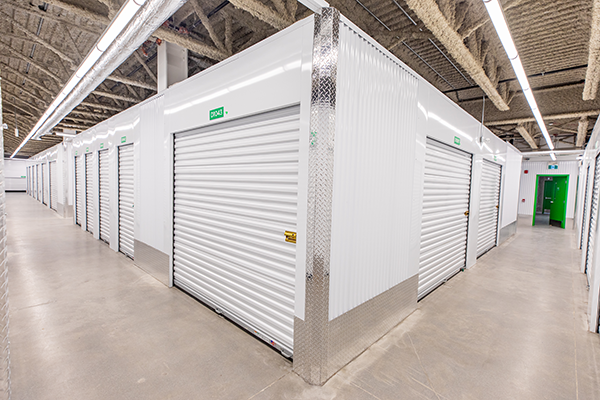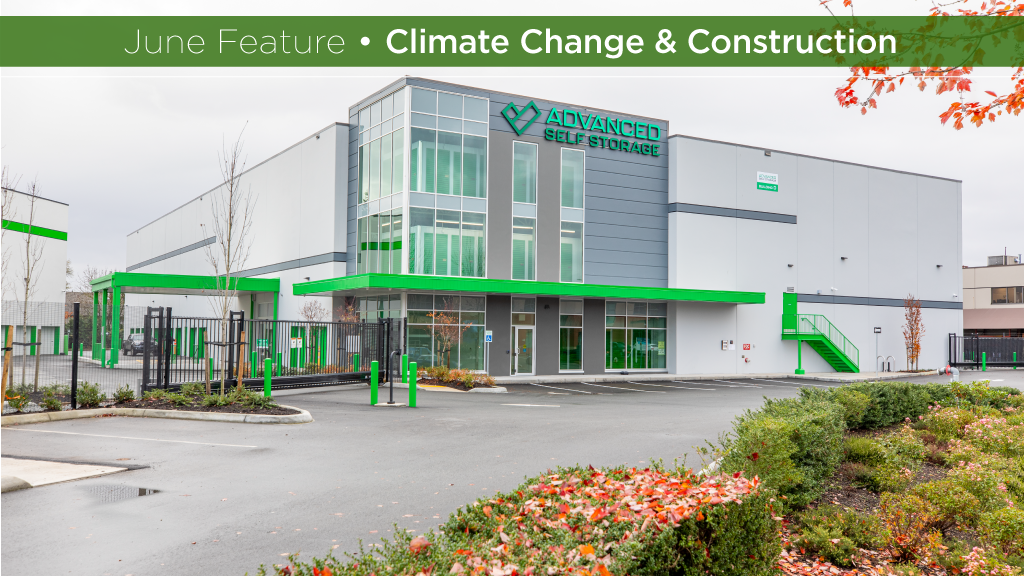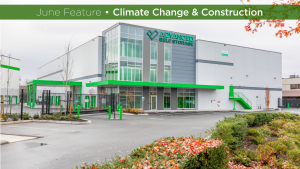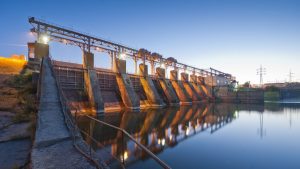The fourth phase of Maple Meadows, a self-storage facility located in Maple Ridge, B.C., has earned Zero Carbon Building – Design Standard™ (ZCB-DS) certification from the Canada Green Building Council (CAGBC).
The certification recognizes eliminating the use of fossil fuels, integrating solar panels and optimizing energy efficiency.
Completed in summer 2024, Maple Meadows Four generates enough energy from rooftop solar panels to offset the amount of energy it uses in a year.
Situated 25 miles east of Vancouver, the facility is Canada’s first net-zero-certified self-storage building.
The three-storey tilt-up structure is 80,000 square feet in area and contains 638 storage lockers.

The Maple Meadows complex is owned and operated by Nicola Real Estate as its Advanced Self Storage brand.
Nicola’s senior development manager Nathan Ma says Maple Meadows Four is a step toward a sustainable self-storage portfolio for the company.
Nicola not only owns the facility, it also designed, built and operates it.
The real estate company put together a team of engineers, sustainability consultants and architects which developed an energy model that could forecast the kind of lighting, mechanical systems and wall thicknesses that could deliver a net-zero design.
Nicola worked with reLoad Sustainable Design Inc. of Vancouver to assess the financial viability of achieving net-zero energy and CAGBC’s ZCB-DS certification.
Martina Soderlund, founder and principal of reLoad, says reducing the energy use of Maple Meadows Four was straightforward, thanks to its many design features:
- All-electric systems, instead of fossil fuels;
- air-source heat pumps for heating and cooling;
- an 82.5 per cent efficient energy recovery ventilation system;
- curtain wall glazing that minimizes heat loss and enhances energy efficiency;
- energy-efficient low-power LED lighting that can be controlled by locker occupants;
- a mixed-air system, with an economizer mode for optimal cooling;
- rooftop solar panels that provide all operating energy; and
- utility sub-meters that monitor real-time energy use.
Achieving ZCB-DS benefited Nicola in a number of ways:
- A 99 per cent reduction in operational greenhouse gas emissions;
- annual operational energy savings of $55,000 and increased building valuation of $1.1 million;
- annual generation of 164.6 MWh of renewable solar photovoltaic electricity; and
- no use of natural gas in the facility.
Ma says self-storage facilities are among the easiest buildings to make net-zero.
“The structures are very basic,” says Ma. “They’re boxes without windows that are used just for storing things. Because nobody lives in the lockers, the owner doesn’t need to worry too much about controlling high temperatures in the summer or cold temperatures in the winter.”
Nicola intends to submit Maple Meadows Four for Zero Carbon Building – Design Standard™ certification in the fourth quarter of 2025.
Nicola has three self-storage building projects in the design stage in the Lower Mainland and on Vancouver Island that will also target ZCB Standards certification.
Ma says the self-storage industry in Canada is growing steadily.
“There’s an increasing demand from businesses and homeowners and renters,” he says. “A growing population, immigration, smaller living units and businesses need more storage space.”
In the United States it is one of the fastest-growing sectors in commercial real estate.
As of 2022, Canada had approximately 3,000 self-storage facilities.
Toronto had about five million square feet of storage facilities and Vancouver had 6.5 million square feet.
CAGBC is a certification and credentialing body that administers project certifications for Zero Carbon Building Standards, LEED, Investor Ready Energy Efficiency and TRUE.











Recent Comments